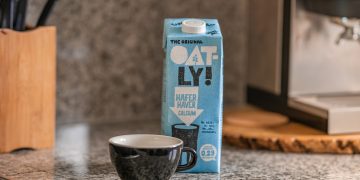
In today’s fast-paced world, stress is an almost inevitable part of life, particularly for busy individuals juggling multiple responsibilities. Whether you’re a professional facing tight deadlines, a parent managing a household, or someone balancing various commitments, stress can take a significant toll on both physical and mental health. This comprehensive guide explores effective stress management techniques tailored for busy people, offering practical strategies to help manage and reduce stress, enhance well-being, and improve overall quality of life.
Understanding Stress
What is Stress?
Definition and Causes
- Physiological and Psychological Response: Stress is a natural physiological and psychological response to perceived threats or challenges. It triggers the body’s fight-or-flight response, releasing hormones such as adrenaline and cortisol.
- Common Causes: Stressors can be external (e.g., work deadlines, financial problems) or internal (e.g., self-imposed pressure, negative self-talk). Identifying the sources of stress is crucial for effective management.
The Impact of Stress
Physical and Mental Effects
- Health Implications: Chronic stress can lead to a range of health issues, including cardiovascular disease, digestive problems, weakened immune function, and sleep disturbances.
- Emotional Consequences: Stress often contributes to anxiety, depression, and mood swings. It can affect cognitive functions, leading to difficulties in concentration and decision-making.
Assessing Your Stress Levels
Recognizing Stress Symptoms
Physical Signs
- Common Symptoms: Common physical symptoms of stress include headaches, muscle tension, fatigue, and gastrointestinal issues. Being aware of these signs can help in early detection and management.
- Body Awareness: Pay attention to how your body responds to stressors. Keeping a journal of physical symptoms can help identify patterns and triggers.
Emotional and Behavioral Signs
Mental and Emotional Indicators
- Emotional Responses: Feelings of overwhelm, irritability, and anxiety are common emotional responses to stress. Recognize these feelings as indicators of stress.
- Behavioral Changes: Changes in behavior, such as withdrawal from social activities, changes in appetite, or increased use of substances, can signal stress. Monitoring these changes can aid in identifying stress levels.
Effective Stress Management Techniques
Time Management Strategies
Prioritizing Tasks
- Task Lists and Prioritization: Create task lists and prioritize activities based on urgency and importance. Use techniques such as the Eisenhower Matrix to categorize tasks into four quadrants: urgent and important, important but not urgent, urgent but not important, and neither urgent nor important.
- Setting Realistic Goals: Break larger tasks into smaller, manageable steps and set realistic deadlines. This approach helps reduce feelings of being overwhelmed and improves productivity.
Delegation and Outsourcing
Effective Delegation
- Delegating Responsibilities: Delegate tasks to colleagues, team members, or family members when possible. Clearly communicate expectations and provide necessary resources to ensure successful completion.
- Outsourcing: Consider outsourcing tasks such as household chores or administrative duties. This can free up time and reduce stress associated with managing multiple responsibilities.
Productivity Tools
Technology Solutions
- Digital Tools: Utilize productivity apps and tools such as calendars, task management software, and reminder apps to stay organized and manage time effectively. Tools like Trello, Asana, and Google Calendar can help streamline tasks and schedules.
- Automation: Implement automation for repetitive tasks, such as bill payments or appointment scheduling. Automation reduces the mental load and minimizes stress.
Healthy Lifestyle Choices
Exercise and Physical Activity
Benefits of Exercise
- Stress Reduction: Regular physical activity is a proven stress reliever. Exercise releases endorphins, which improve mood and reduce anxiety.
- Types of Exercise: Incorporate a variety of exercises into your routine, such as aerobic activities, strength training, and flexibility exercises. Find activities you enjoy to increase adherence.
Nutrition and Hydration
Balanced Diet
- Healthy Eating: Maintain a balanced diet rich in fruits, vegetables, whole grains, lean proteins, and healthy fats. Avoid excessive caffeine, sugar, and processed foods, which can exacerbate stress.
- Meal Planning: Plan and prepare meals in advance to ensure you have access to nutritious food during busy periods. This can help prevent unhealthy eating habits driven by stress.
Hydration
- Importance of Water: Staying hydrated is essential for overall health and stress management. Aim to drink at least 8 glasses of water per day and limit consumption of caffeinated and sugary beverages.
- Hydration Tips: Keep a water bottle with you throughout the day and set reminders to drink water regularly.
Mindfulness and Relaxation Techniques
Mindfulness Practices
Meditation and Breathing Exercises
- Mindfulness Meditation: Practice mindfulness meditation to increase awareness of the present moment and reduce stress. Use guided meditations or apps to help you get started.
- Breathing Techniques: Utilize deep breathing exercises to calm the nervous system and manage acute stress. Techniques such as diaphragmatic breathing and the 4-7-8 method can be effective.
Progressive Muscle Relaxation
Relaxation Techniques
- Muscle Relaxation: Progressive muscle relaxation involves tensing and then slowly relaxing each muscle group. This technique helps alleviate physical tension and promotes overall relaxation.
- Guided Exercises: Use guided exercises or apps to practice progressive muscle relaxation effectively. Set aside time for relaxation exercises during stressful periods.
Creating a Stress-Reducing Environment
Comfortable Spaces
Home Environment
- Designing for Comfort: Create a comfortable and calming home environment. Use soothing colors, comfortable furniture, and elements such as plants and soft lighting to enhance relaxation.
- Decluttering: Keep your living space organized and free of clutter. A tidy environment can reduce stress and create a sense of calm.
Work Environment
Ergonomics and Workspace Organization
- Ergonomic Setup: Ensure your work environment is ergonomically designed to reduce physical strain. Use an adjustable chair, proper desk height, and appropriate lighting.
- Workspace Organization: Keep your workspace organized and free of distractions. Use storage solutions and maintain a clean, orderly desk to improve focus and reduce stress.
Building Resilience and Coping Skills
Developing Coping Strategies
Cognitive Behavioral Techniques
- Positive Thinking: Practice cognitive behavioral techniques to reframe negative thoughts and develop a positive mindset. Challenge irrational beliefs and focus on realistic, positive outcomes.
- Problem-Solving Skills: Enhance problem-solving skills to address stressors effectively. Break problems into manageable steps and develop practical solutions.
Building Emotional Resilience
Emotional Intelligence
- Self-Awareness: Develop self-awareness by recognizing your emotional responses to stress. Understand your triggers and practice self-regulation techniques.
- Emotional Support: Seek support from friends, family, or a therapist when needed. Building a support network and expressing emotions can help manage stress and build resilience.
Practical Tips for Incorporating Stress Management Techniques
Daily Integration
Routine and Consistency
- Incorporate Stress-Relief Practices: Integrate stress-relief practices into your daily routine. Set aside time for exercise, mindfulness, and relaxation techniques each day.
- Consistency: Maintain consistency with stress management practices to achieve long-term benefits. Establishing a routine helps create habits that support stress reduction.
Time Management and Planning
Effective Scheduling
- Time Blocking: Use time-blocking techniques to allocate specific periods for tasks, relaxation, and self-care. This approach helps manage time effectively and ensures balance.
- Prioritizing Self-Care: Prioritize self-care activities and schedule them as part of your routine. Treat self-care with the same importance as work or other responsibilities.
Seeking Professional Help
When to Seek Support
- Therapy and Counseling: Consider seeking professional help if stress becomes overwhelming or chronic. Therapists and counselors can provide valuable support and coping strategies.
- Stress Management Programs: Explore stress management programs or workshops that offer structured approaches to managing stress. These programs often provide tools and resources for effective stress reduction.
Case Studies and Success Stories
Case Study 1: Managing Work-Related Stress
A busy professional effectively managed work-related stress by:
- Time Management: Implementing task lists, prioritizing responsibilities, and using productivity tools to stay organized.
- Work-Life Balance: Setting boundaries between work and personal life, incorporating regular breaks, and practicing mindfulness.
Case Study 2: Balancing Family and Career
A parent successfully balanced family and career responsibilities by:
- Delegation and Outsourcing: Delegating household tasks and outsourcing certain responsibilities to free up time.
- Healthy Lifestyle Choices: Maintaining a balanced diet, regular exercise, and incorporating self-care practices into daily routines.
The Future of Stress Management for Busy People
Emerging Trends
Technology and Stress Management
- Wearable Devices: Explore wearable devices that monitor stress levels and provide real-time feedback. These devices can help track physiological responses and encourage stress-reducing practices.
- Digital Wellness Solutions: Utilize digital wellness apps and platforms that offer stress management resources, guided meditations, and personalized recommendations.
Holistic Approaches
Integrative Stress Management
- Mind-Body Connection: Emphasize integrative approaches that address both physical and mental aspects of stress. Combining mindfulness, exercise, and healthy lifestyle choices supports overall well-being.
- Personalized Strategies: Develop personalized stress management strategies based on individual needs and preferences. Tailoring techniques to specific stressors enhances effectiveness.

Effective stress management is essential for busy individuals seeking to maintain well-being and enhance quality of life. By understanding stress, assessing your stress levels, and implementing practical techniques, you can manage and reduce stress effectively. Incorporating time management strategies, healthy lifestyle choices, mindfulness practices, and building resilience are key components of a comprehensive stress management approach. Embracing these techniques and prioritizing self-care can help you navigate the demands of a busy life while fostering a sense of balance and tranquility. With consistent effort and practical application, you can achieve a healthier, more fulfilling life amidst the challenges of modern living.










